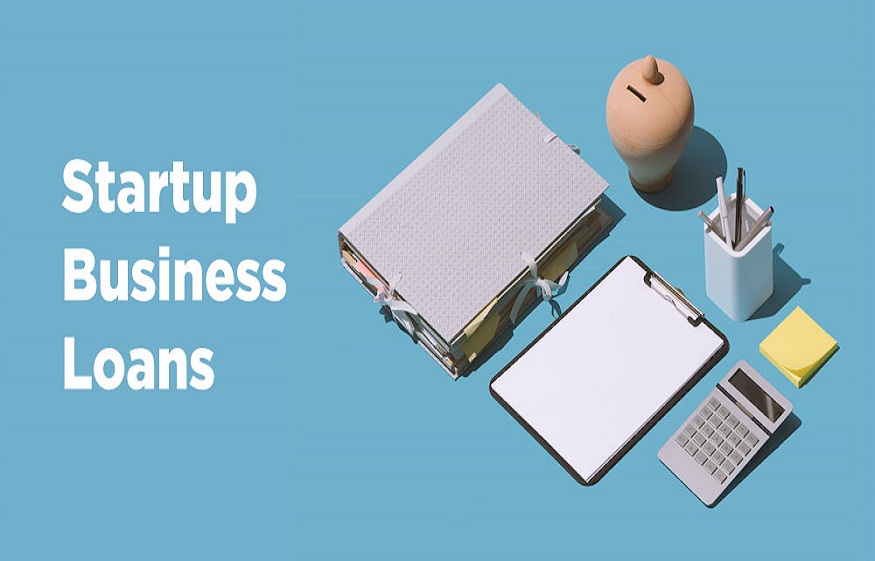SBA loans can offer up to $5 million for your new business, with low down payments of 10%. This opens doors by making big projects more manageable. It offers extended repayment terms and custom financial solutions.
Getting a startup loan is key to unlock your business’s financial power. SBA loans help with buying equipment, stocking up inventory, and getting working capital or property. With funding available in 45 states, many entrepreneurs can start and grow their ventures. Some people think getting SBA loans is hard, but don’t be fooled. A strong business plan, good credit, and some personal investment can pave the way. Begin now to access startup capital that will propel your business.
Understanding Different Types of Startup Loans
Getting the right financing is a big challenge for new entrepreneurs. Knowing different startup loans helps in getting the money needed to grow a business.
SBA startup loans are a key option. This includes 7(a) loans, 504 loans, and microloans.
- 7(a) Loans: Very popular among SBA loans, 7(a) loans let businesses borrow up to $5 million. They work well for working capital, buying equipment, and buying real estate. By March 27, 2024, businesses received over $12.9 billion in 7(a) loans, with 16.1 percent going to startups.
- 504 Loans: These loans also offer up to $5 million. They are for buying fixed assets like buildings or equipment. More than $3 billion in 504 loans were approved by 2024, with 15.9 percent for startups.
- Microloans: Administered through nonprofits, these loans go up to $50,000. They’re good for working capital, inventory, or equipment. For example, Accion Opportunity Fund has microloans from $5,000 to $250,000 with rates between 8.49 percent and 24.99 percent.
There are other financing options for startups besides SBA loans:
- Term Loans: You can borrow up to $500,000. APRs start at 9 percent with up to a 10-year repayment term.
- Short-term Loans: These have APRs as low as 8 percent. Repayment is between six to 18 months.
- Business Lines of Credit: This option allows for flexible borrowing. Repayment can last up to five years. It’s great for managing cash flow.
- Invoice Factoring and Financing: With invoice factoring, you get 70 to 95 percent of an invoice upfront. Invoice financing gives up to 80 percent without selling the invoice.
Different loans offer benefits like long repayment times and low interest rates. But, banks often have tighter rules and shorter payback periods.
Choosing the right loan is key for a startup’s success. Using various types like SBA loans can help build a successful business.
Tips to Increase Your Chances of Loan Approval
Getting a loan for your startup can feel tough. But, using smart strategies can really up your odds. A 2023 study found only 40 percent of young businesses got full funding. It shows how essential good planning is.
First up, watch your credit score closely. A strong personal credit score boosts your chances of getting a loan. For example, to get a business credit card, you often need a score of 690 or more.
Having a strong business plan is vital, too. Lenders want to see your plan for success and how you’ll pay back the loan. A great business plan shows your market analysis, expected earnings, and how you’ll use the loan to grow.
Lenders also look at how much you make. They usually like to see earnings between $100,000 and $250,000 for regular loans. But, there are other loans, like microloans or equipment financing, which have different requirements.
Let’s look at the data:
| Loan Type | Funding Range | Requirements |
| Term Loans | $10,000 to $10 million | Annual revenue of $100,000 – $250,000 |
| Business Lines of Credit | Up to $250,000 | Varies |
| Commercial Real Estate Loans | Up to $10 million | Varies |
| SBA Loans | Up to $5.5 million | FICO SBSS score of at least 155 |
| Equipment Financing | Up to $500,000 | Funding up to 100% of purchase amount |
| Microloans | $50,000 to $150,000 | Varies |
Using personal savings or asking friends and family for money is common for startups. Yet, for formal loans, you may need a certain balance in your business accounts. Or you might need to have been in business for at least 24 months. The preapproval process may check your credit closely.
Show you believe in your business by investing your own money. This lowers the risk for lenders. Having all your financial paperwork ready, like bank records and tax returns, can speed up getting a loan.
Comparing lenders can help you find the best deal. Good financial planning and being prepared increases your chances of getting a startup loan.
Exploring Startup Loans for Business
Getting the right startup loan is key for new entrepreneurs. Many loan options are there, each one fitting different business needs and credit situations.
The SBA microloan is a great choice, with an average loan of $17,245 in 2024. About 25% of these loans go to startups, showing they are quite accessible. The SBA can lend up to $50,000 for starting or growing your business.
Online lenders like Kabbage and OnDeck are good for quick money. They usually give smaller loans with higher interest rates than banks. This makes them a good pick for startups needing funds fast.
CDFI loans offer low rates and easier to meet criteria than regular bank loans. They aim to help minority or underserved borrowers and places.
If your startup makes a lot from credit card sales, look into merchant cash advances. They give you cash upfront for a part of your future sales.
Invoice financing is another fast way to get cash. It lets you use unpaid invoices to get funds quickly, easing cash flow problems.
Equipment financing is another route, with rates and terms depending on your qualifications and the equipment’s worth. It’s good for getting the machines and tools your business needs.
Personal loans can work for startups too, especially if you have strong personal credit. A score of 630 or higher means better loan terms.
Crowdfunding on platforms like Kickstarter and Indiegogo is also popular. It lets you present your idea to the public to get funds from individual supporters. It not only raises money but helps see if people like your idea and starts building a customer group.
Here is a detailed comparison of various startup loan options:
| Loan Type | Average Amount | Interest Rates | Qualifications |
| SBA Microloan | $17,245 | Competitive | 25% to startups |
| Online Lenders | Varies | Higher | Personal credit score 500+ |
| CDFI Loans | Varies | Competitive | Flexible qualifications |
| Invoice Financing | Based on unpaid invoices | Varies | Easy access |
| Equipment Financing | Varies | Varies | Qualifications and equipment value |
| Personal Loans | Varies | Varies | Personal credit score 630+ |
Knowing and looking into these different startup loan options helps entrepreneurs pick the right funding. This way they can start and grow their business well.
Conclusion
Getting a startup loan is key for growing a strong business. It’s crucial to know the different ways to get funding. This means looking at both traditional loans and what SBA loans offer.
Planning well and making your credit look good are big steps to getting a loan. This can make or break your efforts to get the funds you need.
For new companies, showing you’re financially stable is tough. But, using SBA microloans and business credit cards can help. It’s important for entrepreneurs to pick the right option for their needs. Making sure you can pay back the money monthly is also key.
Good financial plans and the right funding strategies turn dreams into reality. Knowing the pros and cons of different loans sets up a good start. Learn about SBA loans here to get ready for your funding search. Smart choices in funding can lead to getting the loan you want and a successful business.




